For the past several years, at our Thursday group, open mics, and at social gatherings of poets in our region, I have heard a sizable number of poets speak about
the value of self-published work or work published by local publishers.
In private and in public some folks have been quite vocal about this matter, remarking on the large number of such publications some poets in the area have. I even heard several people raise questions about the little confab of local publishers held at UAG [I think it was] last year, where local presses “showed off” their work.
In response to questions, statements sent my way directly or indirectly, I told some folks in our Thursday group and elswhere that I wanted to think about the matter a bit. When I was in Ireland last March I sat down one day and wrote the following notes.
These notes address not only this matter but also the qualities of some small poetry groups and, maybe more importantly, what it means to be a poet, what the poem is [its purpose], and several other items of interest—or disinterest depending on one’s own interests. The nature of the poem, its purpose, and limitations and who or what a poet is I think are worthy of discussion.
Anyway, I share what I wrote, having just finished typing it up a few days ago. The Irish in me!
I put the essay into a little booklet as well, a very, very limited edition with a picture of the beautiful Sneem River on the cover; it runs through one of my home towns. Hopefully the notes will facilitate some reflection about the ideas, if they are of any value to anyone other than myself. I am happy with my part in the process regardless.
I will not discuss the matter through e-mail if there are responses to the thoughts here—I just cannot type that much in response—but will be happy to read what folks add to the blog and to discuss such matters face-to-face when I meet poets in the future.
I hope the writing of everyone progresses well.
Sincerely,
Dennis
Giving Voice to the Vatic:
The Poet and Locality
by
Dennis Sullivan
The poetic tradition is vatic, a tradition of vision and prophesy, and thus a practice of the body beginning with but not ending in death.
Poetry begins with the breakdown of boundaries, with cracks in the wall, where light pours in, filling the soul to overflowing. The poet is born in the person who sings ecstatic: “Rock o'my soul in de bosom of Abraham!”
While prose may be poetic, it is comprised of the leftovers of vatic chants, the construction of stories about before, during, and after, and is essentially, in construction of the flood—the how we fare, hope to fare, and fear we may not fare—narrative, though of course there is narrative poetry, poetry at its weakest link. This despite the assessment that all poetry is at heart narrative.
Regardless, not because of the poet’s intentions (poetry has no ax to grind) but because of how the light (lightening) strikes, the poem is a shared space in which all comers can speak about their dreams, every ilk and permutation. The poem, even though poets personally are not necessarily so, is truly democratic, anarchic, an oracle with structure but not necessarily logic, the farthest thing from linear, hence the remarks about narrative.
Poets do not choose to speak but are carried away by the flow or flash of light, a bacchanalian rite, the value of the poet and any particular poem being her/his/its drawing attention to the unsettling of the old and the creation of the new thereby engendering appreciation for life, the expressional joy of being alive, followed by steps to create, re-create that life anew. The poet is a personal demonstration project; look at Denise Levertov shining her light within a cave.
The publication of the poem then is not the poem (like you see in the store); the poem is the felt-expressed experience of new light, life, but the handing down of vatic praise, chant, warning, ecstatic babble, is made sense of only with great difficulty. There are some who worry about the audience of a poem which is foolishness at its core because the poet is the audience, the taker-in of the experience; the written-down or orally-transmitted expression of that experience is the after-thought of the poetic-act or after-act of poetic-thought, if you like.
There are some creatures who worry about the means by which the felt-expressed finds the light of day, its market value and distribution properties—it is a frame of mind—and thus are drawn from entering the sacred (I use this term with great trepidation and all due apology to anarchists, i. e., poets) and thus are drawn away from entering into the sacred space of the published poem and discovering or discovering anew their own life within it, life within.
How many poems did Emily Dickerson see published in her (bodily) lifetime but she was the living presence of poetry throughout it. In the early Christian church bishops (επίσκοποi) rose out of the commons; the community recognized what they had to say as vatic, prophetic, as having to do with the continuing life of community, the conditions of life and took the liberty to make that life public.
Vates were selected to minister, serve, the needs of community, to help the community understand and identify those needs and steps to take to meet them, acts that violated neither the individual nor collective will, through which the community of persons expressed its commitment to mutual aid, cooperation, love, selflessness, reconciliation, any quality or practice (both means and ends) that fostered the survival and enjoyable well-being of life.
Within the context of the poetic community—which is a contradiction in terms because the poet is a person of the whole community—vatic souls join together to understand the vatic experience and ways to keep it pure as possible, the least self-seeking. But a community that refuses to hieraticize itself (despite hieratic involvement) tends to lord it over the larger community thereby creating a rabblish poloi—the poet, the poem is there to dismantle, eradicate disable distinctions, not an aim but as a result of felt-lightening.
There arises at times within the community (large or small) individuals who give their lives to making public, giving voice to, the words, expressions, experiences regarding the lifeline-light (sometimes at the most local of local levels, where this all starts) giving voice to the vatic experience. Those who jump into this stream are not eagle eyes but eagle hearts and ears, “Look, the light! I will tell it on the mountain!” When John Work penned "Go tell it on the mountain, over the hills and everywhere" he was telling how the community had been struck by lightening anew.
The publisher, the making public-er, becomes a mountain (socialist soapbox) from which the vatic experience can be expressed and heard—a benevolent act—leaving it to the listener to decide: life-affirming or not? Those who go to the mountain to give voice, though connected to the market, sell wares of collectivity. The manufacture, sale, and distribution of poems are tied to the interests, needs, concerns, hopes, and fears of the community. Poets, like life itself, want life to continue and so aspire to mountaintops from which to speak the delight of experience, Rilke’s under any circumstances, “I praise!”
Big book little book, pamphlet, broadside tacked to the side of a bare-wood barn—no difference, the format immaterial to the felt-experienced-expressed word/poet of life. Essential is what the reader/listener/other-feeler experiences. Are they alive to the life-force, maybe moved to build a mountain to proclaim life from a peak themselves, become poets themselves.
Little poetry groups, workgroups, and the like, exist ad infinitum and, regardless of stated aims and purposes, sometimes stand in the way of life, ordaining themselves with rites that are solely self-directed. Their interest may be seeing poems published—with which there is no intrinsic problem—but sometimes (I’d like to see a study) the group stands in the way of the light seen.
There is nothing wrong with having a night out—who’s to say?—in the interest of sociality (a good 19th century moniker) and conviviality with seemingly like-minded persons (however measured) that is, persons interested in words, human expression, the appreciation of read and published poems and the implications of same for, well, we already said for what, but the “aim” is well worth exploring.
That is, the question persists: to what extent is a person in a work/study group and the group as a whole (its stated and practiced purpose) committed to understanding and appreciating (valuing) the vatic enterprise, which includes making known other vatic experiences that tell the truth (of life, of life’s requirements, human needs, survival, joy at the realization of the gift of life, etc.).
As stated, there are indeed judges and assessors of the truthful experience high and low. A publisher works with works regarded as reflecting the true vatic experience and fostering vividness in others. Who’s to say that person should not engage in joy, gratitude, and appreciation? Who’s to say only corporate/market-certified work is the truest or true reflection of life-engendering vatic experience, that capital credentials bolster the validity of the felt-experience?
While assessment of the vatic experience that leads to publication is welcome at all levels—welcomed or not it will take place—it is the community, the individuals within the community who are the ultimate and paradoxically the first-level assessors. Do we worry less, issue wistful sighs, covet relaxation? By reading, listening to, studying, explicating, divining, digging into, even with a pick ax, the experimenter is more alive, more connected, feels driven to share life with others or, at the very least, not deprive others of that experience—which includes slamming non-market-certified publishers from engaging in publicizing.
I might add that, while the vatic experience is ecstatic in nature, over which one, the poet, has no control (being hit with lightening is as good as any definition of being called) the poet has techniques, methods, structures, which clear away the debris which inserts itself into the light, so poems can remain as clear as first experienced. There is no such thing as “polishing” a poem—God forbid!—only opening up—whatever that is, that is a treatise in itself—to the originally-experienced inspiration, breath, light, spirit, from which the words, chant, poem, song, arose.
This is a process in which the poet tries to get out of the way of the prophetic experience. The felt-joy of the experience is too great to compromise through meddling, joined by a rabid fear that dissembling will lead to a loss of joy. Cynics will say the poet is engaging in a kind of hexing, in magical skullduggery—“The bard of Thrace drew the trees, held beasts enthralled and constrained stones to follow him” Metamorphoses XI, 1-2—but such statements are a projection of ill-seated paranoia and hucksterism, a disbelief in one’s own essential light to make an informed assessment of: am I alive? Let me count the ways. Is your math the same?
Thus the vates, called, chosen, wishes to be true to the vatic/prophetic. Of course the poet wishes her or his work known and when self-interest plays a role in the enterprise, we speak of true vates and false vates, true prophets and false prophets. The Greek Scriptures say it all: by our poetry we know our true selves; the effects of the practices preached tell the magicians, hucksters, tricksters from the healers, those who stack the deck versus those who bandage wounds.
In the construction of self, the construction of life in the form of the poem, the poet . . . well, is it too much to ask a poet to bandage wounds, does that not lame art at the outset—more than likely—but poetry is not about bandaging anything, it’s about preventing before the thought of a blow is struck.
The Poet and Locality
by
Dennis Sullivan
The poetic tradition is vatic, a tradition of vision and prophesy, and thus a practice of the body beginning with but not ending in death.
Poetry begins with the breakdown of boundaries, with cracks in the wall, where light pours in, filling the soul to overflowing. The poet is born in the person who sings ecstatic: “Rock o'my soul in de bosom of Abraham!”
While prose may be poetic, it is comprised of the leftovers of vatic chants, the construction of stories about before, during, and after, and is essentially, in construction of the flood—the how we fare, hope to fare, and fear we may not fare—narrative, though of course there is narrative poetry, poetry at its weakest link. This despite the assessment that all poetry is at heart narrative.
Regardless, not because of the poet’s intentions (poetry has no ax to grind) but because of how the light (lightening) strikes, the poem is a shared space in which all comers can speak about their dreams, every ilk and permutation. The poem, even though poets personally are not necessarily so, is truly democratic, anarchic, an oracle with structure but not necessarily logic, the farthest thing from linear, hence the remarks about narrative.
Poets do not choose to speak but are carried away by the flow or flash of light, a bacchanalian rite, the value of the poet and any particular poem being her/his/its drawing attention to the unsettling of the old and the creation of the new thereby engendering appreciation for life, the expressional joy of being alive, followed by steps to create, re-create that life anew. The poet is a personal demonstration project; look at Denise Levertov shining her light within a cave.
The publication of the poem then is not the poem (like you see in the store); the poem is the felt-expressed experience of new light, life, but the handing down of vatic praise, chant, warning, ecstatic babble, is made sense of only with great difficulty. There are some who worry about the audience of a poem which is foolishness at its core because the poet is the audience, the taker-in of the experience; the written-down or orally-transmitted expression of that experience is the after-thought of the poetic-act or after-act of poetic-thought, if you like.
There are some creatures who worry about the means by which the felt-expressed finds the light of day, its market value and distribution properties—it is a frame of mind—and thus are drawn from entering the sacred (I use this term with great trepidation and all due apology to anarchists, i. e., poets) and thus are drawn away from entering into the sacred space of the published poem and discovering or discovering anew their own life within it, life within.
How many poems did Emily Dickerson see published in her (bodily) lifetime but she was the living presence of poetry throughout it. In the early Christian church bishops (επίσκοποi) rose out of the commons; the community recognized what they had to say as vatic, prophetic, as having to do with the continuing life of community, the conditions of life and took the liberty to make that life public.
Vates were selected to minister, serve, the needs of community, to help the community understand and identify those needs and steps to take to meet them, acts that violated neither the individual nor collective will, through which the community of persons expressed its commitment to mutual aid, cooperation, love, selflessness, reconciliation, any quality or practice (both means and ends) that fostered the survival and enjoyable well-being of life.
Within the context of the poetic community—which is a contradiction in terms because the poet is a person of the whole community—vatic souls join together to understand the vatic experience and ways to keep it pure as possible, the least self-seeking. But a community that refuses to hieraticize itself (despite hieratic involvement) tends to lord it over the larger community thereby creating a rabblish poloi—the poet, the poem is there to dismantle, eradicate disable distinctions, not an aim but as a result of felt-lightening.
There arises at times within the community (large or small) individuals who give their lives to making public, giving voice to, the words, expressions, experiences regarding the lifeline-light (sometimes at the most local of local levels, where this all starts) giving voice to the vatic experience. Those who jump into this stream are not eagle eyes but eagle hearts and ears, “Look, the light! I will tell it on the mountain!” When John Work penned "Go tell it on the mountain, over the hills and everywhere" he was telling how the community had been struck by lightening anew.
The publisher, the making public-er, becomes a mountain (socialist soapbox) from which the vatic experience can be expressed and heard—a benevolent act—leaving it to the listener to decide: life-affirming or not? Those who go to the mountain to give voice, though connected to the market, sell wares of collectivity. The manufacture, sale, and distribution of poems are tied to the interests, needs, concerns, hopes, and fears of the community. Poets, like life itself, want life to continue and so aspire to mountaintops from which to speak the delight of experience, Rilke’s under any circumstances, “I praise!”
Big book little book, pamphlet, broadside tacked to the side of a bare-wood barn—no difference, the format immaterial to the felt-experienced-expressed word/poet of life. Essential is what the reader/listener/other-feeler experiences. Are they alive to the life-force, maybe moved to build a mountain to proclaim life from a peak themselves, become poets themselves.
Little poetry groups, workgroups, and the like, exist ad infinitum and, regardless of stated aims and purposes, sometimes stand in the way of life, ordaining themselves with rites that are solely self-directed. Their interest may be seeing poems published—with which there is no intrinsic problem—but sometimes (I’d like to see a study) the group stands in the way of the light seen.
There is nothing wrong with having a night out—who’s to say?—in the interest of sociality (a good 19th century moniker) and conviviality with seemingly like-minded persons (however measured) that is, persons interested in words, human expression, the appreciation of read and published poems and the implications of same for, well, we already said for what, but the “aim” is well worth exploring.
That is, the question persists: to what extent is a person in a work/study group and the group as a whole (its stated and practiced purpose) committed to understanding and appreciating (valuing) the vatic enterprise, which includes making known other vatic experiences that tell the truth (of life, of life’s requirements, human needs, survival, joy at the realization of the gift of life, etc.).
As stated, there are indeed judges and assessors of the truthful experience high and low. A publisher works with works regarded as reflecting the true vatic experience and fostering vividness in others. Who’s to say that person should not engage in joy, gratitude, and appreciation? Who’s to say only corporate/market-certified work is the truest or true reflection of life-engendering vatic experience, that capital credentials bolster the validity of the felt-experience?
While assessment of the vatic experience that leads to publication is welcome at all levels—welcomed or not it will take place—it is the community, the individuals within the community who are the ultimate and paradoxically the first-level assessors. Do we worry less, issue wistful sighs, covet relaxation? By reading, listening to, studying, explicating, divining, digging into, even with a pick ax, the experimenter is more alive, more connected, feels driven to share life with others or, at the very least, not deprive others of that experience—which includes slamming non-market-certified publishers from engaging in publicizing.
I might add that, while the vatic experience is ecstatic in nature, over which one, the poet, has no control (being hit with lightening is as good as any definition of being called) the poet has techniques, methods, structures, which clear away the debris which inserts itself into the light, so poems can remain as clear as first experienced. There is no such thing as “polishing” a poem—God forbid!—only opening up—whatever that is, that is a treatise in itself—to the originally-experienced inspiration, breath, light, spirit, from which the words, chant, poem, song, arose.
This is a process in which the poet tries to get out of the way of the prophetic experience. The felt-joy of the experience is too great to compromise through meddling, joined by a rabid fear that dissembling will lead to a loss of joy. Cynics will say the poet is engaging in a kind of hexing, in magical skullduggery—“The bard of Thrace drew the trees, held beasts enthralled and constrained stones to follow him” Metamorphoses XI, 1-2—but such statements are a projection of ill-seated paranoia and hucksterism, a disbelief in one’s own essential light to make an informed assessment of: am I alive? Let me count the ways. Is your math the same?
Thus the vates, called, chosen, wishes to be true to the vatic/prophetic. Of course the poet wishes her or his work known and when self-interest plays a role in the enterprise, we speak of true vates and false vates, true prophets and false prophets. The Greek Scriptures say it all: by our poetry we know our true selves; the effects of the practices preached tell the magicians, hucksters, tricksters from the healers, those who stack the deck versus those who bandage wounds.
In the construction of self, the construction of life in the form of the poem, the poet . . . well, is it too much to ask a poet to bandage wounds, does that not lame art at the outset—more than likely—but poetry is not about bandaging anything, it’s about preventing before the thought of a blow is struck.




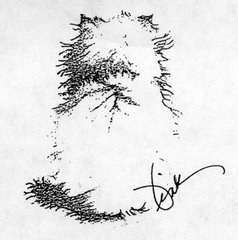













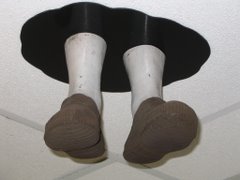



























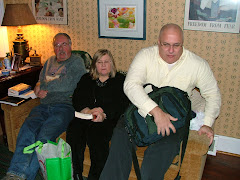
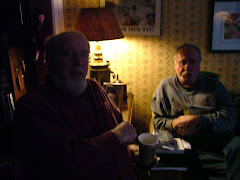

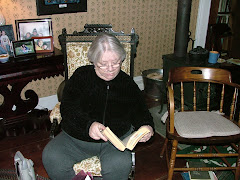
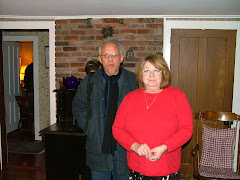
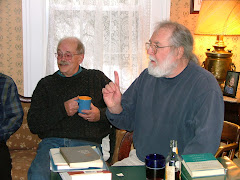
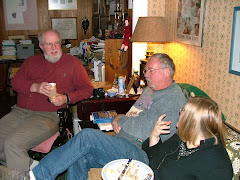

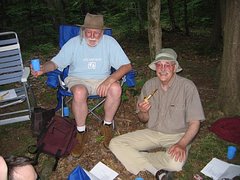
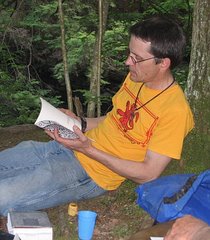


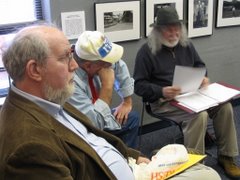
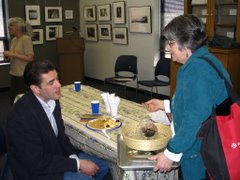


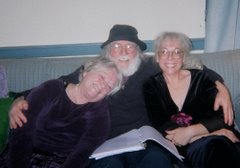
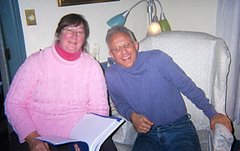
Thank you so much for your time and effort Dennis. I had to read it twice. So pure and honest. Very...Dennis. I am moved. My position is swayed. Great points. Like I said to Larry at our Philosophy Meeting, I love the feeling I go through physically, mentally, spiritually - when another human being changes my mind on something important.
ReplyDelete- Tim Verhaegen
Dennis upon reading it again, we started to discuss it here. Someone observed that you were placing certain motivations on why people publish. It was observed that the motivations you explained were very virtuous motivations, namely living the vatic experience.
ReplyDeleteThe thought was raised that many people get published so they can say "I am a published poet" - so that they may give themselves an authenticity - an impression of authenticity given to others who may not understand that non-corporate publishers exist at all.
I don't think anyone could object to the motivatiosn you place on people who wish to be published. But very often titles, credits and accolades are put on resumes or media publications if you will "Metroland's Best Poet" the "Robert Folton" poetry prize without showing any context in those accolades and credits.
I think that is when you start hearing the voices of doubt and cynicism from your colleagues at art galleries, open mics - all around you. Because the motivation you place on someone being published by themselves or a friend - no longer exists.
As soon as ego, vanity, and self promotion come into the motivation, whether acknowledged by the author, or not - other people smell the falseness of it - and the vatic experience which you refer - is non-existent or at the very least - takes a back seat.
As you have said -if indeed the only audience is ourselves - and the vatic experience is key - we don't need a Robert Folton contest, we do not need contests of any kind, we don't need two paragraphs of writing credits on open mic bios.
But since we have egos - we need contests, prizes, credits on open mic bios - desperately. We want and need others to justify our art. Thats when people are always going to roll their eyes.
- Tim Verhaegen
Who is Emily Dickerson?
ReplyDeleteTim, (if I understand you correctly) I am in complete agreement with you. You verbalized my opinion very nicely. I preface this by saying that I admire Alan's sincere efforts to spread "the word", so I am exempting him from this criticism. I just think that a vanity press is called that for reason and publishing your own book diminishes its credibility.
ReplyDeleteThis is a wonderful forum for ideas about poetry and, I think, suggests that we ought to set aside an entire group time for discussions of this sort on general issues related to the writing of poetry. What about that?
ReplyDeleteRelating to the discussion at hand here, my major concern has to do with standards of excellence. While I know from first-hand experience that the world of noted and respected publishing is an extrememly arbitrary and complex situation, the world of local publishing is no less fraught with questionable standards. I would ask the same questions in both cases: Does the publication meet my personal standards for excellence, integrity and creativity based on my forty years of devotion to the art of writing poetry? Do the editors share my dedication to upholding the highest standards of the writing profession? Are they clear about the nature of their biases with respect to form and content? Do they honor a tradition of eclecticism in their publications?
I can't tell you how many disturbing experiences I have had seeing my work in publications that for the most part were embarrassingly amateurish and unprofessional. And this has been the case with both local and national publications. I am not one who automatically dismisses a belief in the prophetic nature of poetry - I work on instincts all the time - but my instincts have been informed by many years of study and experimentation, which I hope is also reflected in the ultimate quality of the product.
As far as ego is concerned, I want my work to represent a devotion to a task that is far more important than a single reputation or life, but I also want it to be as totally expressive of that single life as possible.
Larry
Publishing a volume of verse is like dropping a rose petal down the Grand Canyon and waiting for the echo.
ReplyDeleteDon Marquis
One of the ridiculous aspects of being a poet is the huge gulf between how seriously we take ourselves and how generally we are ignored by everybody else.
Billy Collins
Hey, Don: Then why not drop something heavier down the canyon, like, say, a trade center?!
ReplyDelete